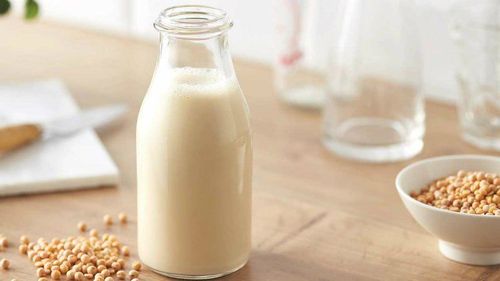This is an automatically translated article.
Dairy foods such as fresh milk, yogurt, cheese,... are rich sources of protein and calcium. They play an important role in creating a balanced, scientific diet.
1. What are the types of dairy foods?
All liquid dairy products and many calcium-containing dairy foods (including yogurt and cheese) are in the dairy group. Calcium-fortified soy milk is also considered part of the dairy group.
Dairy foods with little or no calcium (such as cream cheese, cream and butter) are not included in the dairy group.
Some foods in the dairy group include:
Milk: Liquid: Nonfat milk (skim milk), low fat milk, reduced fat milk, flavored milk, whole milk, lactose-free milk; Dairy desserts: Frozen yogurt, iced milk, puddings, smoothies, ice cream, lassi (drinks made from yogurt combined with juice or pureed fruit), sherbet (drinks consisting of milk) , cream, egg white, gelatin, fruit,...); Cheese (cheese): Hard natural cheese: Cheddar cheese, Gouda cheese, Mozzarella cheese, Muenster cheese (Germany), Parmesan cheese, Provolone cheese,...; Soft cheese: Brie cheese (France), Camembert cheese, Cottage cheese (fresh cheese curd), feta cheese (Greek white salted curd cheese), Ricotta cheese (Italian) ; Processed cheese: American cheese or cheese spread. Non-dairy calcium substitutes: Soy milk,... Yogurt: Dairy-based yogurt: Fat-free, low-fat, reduced-fat or plain yogurt; Soy milk yogurt.
2. How many cups of milk per day is reasonable?
The amount of milk you need to supplement daily will depend on your age. Each person needs 2-3 cups of milk/day. People who are physically active may need to supplement their diets with more dairy. The recommended number of cups of milk per day is:
Children 2 - 3 years old: 2 cups/day; Children 4 - 8 years old: 2.5 cups/day; 9 years and older: 3 cups/day. 1 cup of milk is equivalent to one cup of yogurt, soy milk, about 14g of natural cheese or 56g of processed cheese. When choosing milk, fat-free and low-fat varieties are better.
Thus, every day, each person needs to supplement dairy foods in an appropriate amount to ensure good health.
References: eathealthy, choosemyplate.gov, blogspot.com













